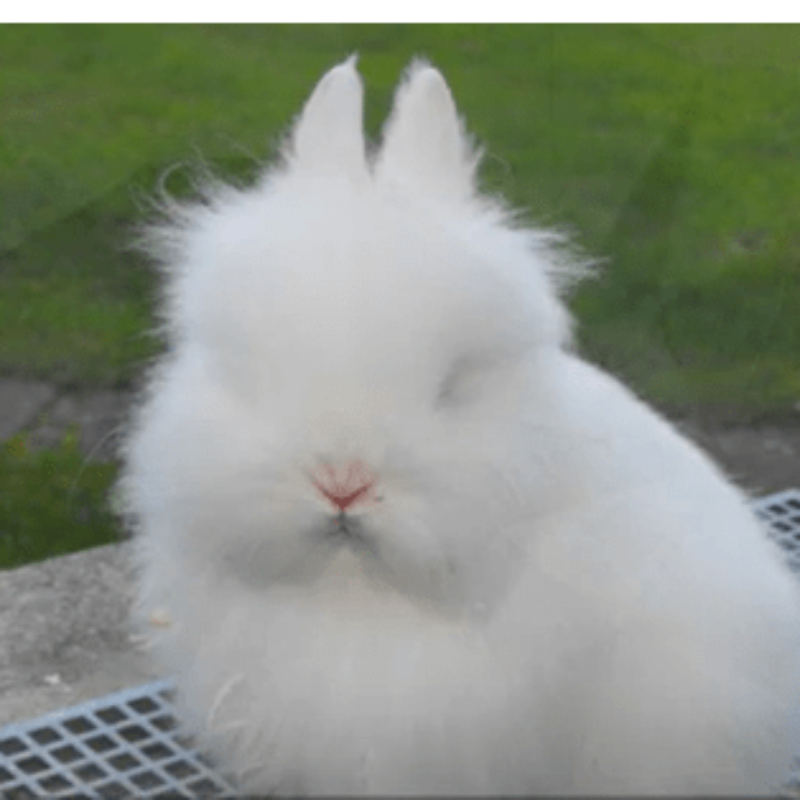Understanding the Life Expectancy of A Lionhead Rabbit:
Knowing the life expectancy of a lionhead rabbit is essential. These are among the most beautiful and unusual rabbit breeds, distinguished by their petite size and mane-like fur.
You may be curious about its lifespan if you consider keeping a Lionhead bunny. How Long Do Lionhead Bunnies Live? With good care, these fluffy friends live between 7 and 10 years, or maybe longer!
This blog will cover all you need to know about extending the lifetime of a Lionhead rabbit, including dietary advice, health issues, habitat design, and basic care instructions. Let us start right now.
Elements Influencing the Lifespan of a Lionhead Bunny:
1. Essential Nutrition for Your Lionhead Companion:
A nutritious diet is essential for enhancing your rabbit’s lifespan. The ideal diet for a Lionhead rabbit consists of the following:
- Timothy hay constitutes – 80% of their diet, promoting optimal digestion and supporting dental health.
- Fresh, vibrant, leafy greens are a powerhouse of essential nutrients.
- Premium pellets – Ensure they are free from artificial fillers and excessive sugar.
- Freshwater – Consistently accessible and refreshed every day.
Tip: Avoid overfeeding fruits and high-sugar vegetables like carrots. Although rabbits enjoy them, excessive sugar can result in obesity and digestive problems.

2. Spaying and Neutering Lionhead Bunnies:
Did you know that rabbits that are spayed or neutered often enjoy a longer lifespan? Unaltered female rabbits face a significant risk of developing uterine cancer, a condition that can be life-threatening. As the House Rabbit Society highlights, neutering is essential for your rabbit’s health and behavior.
Key Benefits of Spaying/Neutering:
- It minimizes aggressive tendencies and territorial instincts.
- It protects against reproductive cancers.
- Encourages rabbits to thrive harmoniously in pairs.
3. Grooming and Hygiene For Lionhead Bunnies:
Lionhead rabbits need consistent grooming because of their luxurious long fur. Ignoring their coat can result in matting and serious health issues. Groom your rabbit at least three times weekly to avoid hairballs, which may lead to gastrointestinal stasis.
Must-Have Grooming Tips:
- Gently brush away loose fur with a soft-bristle brush.
- Regularly trim your pet rabbit nails to keep them from growing too long.
- Examine their ears and teeth for any indications of infection.
4. Indoor vs. Outdoor Living For Your Lionhead Bunny:
The environment in which your rabbit resides plays a crucial role in determining their lifespan. Indoor rabbits generally enjoy a longer life, shielded from predators, harsh temperatures, and various diseases.
🏡 Optimal Living Spaces for Lionhead Rabbits:
- Ensure a spacious enclosure that allows for plenty of hopping and stretching.
- Use a gentle bedding option, such as hay or fleece.
- Maintain a clean and dry living area to safeguard against infections.


5. Physical Activity and Cognitive Engagement:
Lionhead rabbits are incredibly energetic and require at least 3 to 4 hours of exercise daily. Lack of movement can lead to weight gain and increased risk factors for health issues.
Engaging Activities for Your Bunny:
- Offer tunnels, ramps, and chew toys.
- Let them explore a space that’s safe for bunnies.
- Foster social connections with both humans and fellow rabbits.
6. Avoiding Frequent Health Concerns:
Lionhead rabbits, much like any other pet, can be susceptible to specific health issues. Discover the most prevalent illnesses and learn effective prevention strategies:
🦷 Dental Disease: Resulting from an inadequate diet or hereditary factors. Make sure your rabbit enjoys a sufficient amount of hay to keep their teeth trimmed and healthy naturally.
🐇 Gastrointestinal Stasis: A serious condition that causes the digestive system to slow down. Ensure prevention by providing a fiber-rich diet and plenty of fresh water.
🐛 Your rabbit may be at risk from pesky parasites like fleas, mites, and ticks. Make it a habit to inspect their fur and contact a vet when necessary.
🚑 Urgent Advice: If your rabbit has not eaten for over 12 hours, do not hesitate to get veterinary assistance immediately.
Unlock the Secrets to a Longer Life for Your Lionhead Bunny:
Discover these essential tips to ensure your furry friend remains joyful and thriving for many years to come:
1️⃣ Provide a well-rounded diet – Emphasize hay, fresh greens, and quality pellets.
2️⃣ Plan consistent veterinary appointments – Detect illnesses early.
3️⃣ Keep them indoors – Protect them from predators and harsh weather.
4️⃣ Regular grooming is essential – Keep fur matting and hairballs at bay.
5️⃣ Keep their minds engaged – Unhappy rabbits are bored rabbits!
6️⃣ Consider spaying or neutering- your rabbit to help prevent reproductive cancers.
🏆 With these simple steps, your Lionhead rabbit can enjoy an entire lifespan of over 10 years!
Concluding Reflections:
Having a Lionhead rabbit comes with significant responsibilities. With the proper care, nutrition, and affection, they can enjoy a long and fulfilling life.
No matter if you are new to rabbit ownership or have years of experience, grasping your rabbit’s needs and potential health concerns is essential for ensuring a happy and healthy life for your beloved companion.
Frequently Asked Questions (FAQs)
1. How long do indoor Lionhead rabbits live?
Indoor Lionhead rabbits often enjoy a longer lifespan than their outdoor counterparts, typically living between 8 and 12 years when given the right care. Keeping your rabbit indoors shields them from predators, extreme weather, and diseases—common threats faced by outdoor bunnies.
✅ Ways to extend an indoor Lionhead rabbit’s lifespan:
- Create a secure and roomy environment that allows for hopping and playful activities.
- Feed a balanced diet of hay, leafy greens, and pellets.
- Maintain a consistent grooming routine to avoid matting and furballs.
- Book annual vet appointments to identify health concerns before they escalate.
- Indoor bunnies often develop deeper connections with their owners due to increased social interaction and stimulation.
2. Can lionhead rabbits live alone?
Lionhead rabbits can thrive independently, but it’s not the best choice for their overall happiness and health. Rabbits thrive in social environments, often forming large groups in their natural habitats.
A solitary rabbit may face feelings of loneliness, boredom, and even depression when deprived of a companion.
Choosing a bonded pair, like a neutered male and a neutered female, is the ideal way to ensure they have companionship.
When you have a single rabbit:
- Spend at least a few hours a day playing and interacting with them.
- Provide plenty of toys and mental stimulation to prevent boredom.
- Please keep them in a social area of your home so they don’t feel isolated.
🚨 Is your rabbit showing signs of loneliness? Look out for decreased activity, frequent hiding, or excessive chewing—these could be indicators that they crave more social interaction.
3. What is the friendliest bunny in the world?
While temperament varies by individual rabbit, some breeds are naturally friendlier and more affectionate than others.
The friendliest rabbit breeds include:
1️⃣ Mini Lop – Playful and loves human attention.
2️⃣ Holland Lop – Small, cuddly, and enjoys being handled.
3️⃣ Lionhead Rabbit – Social and forms strong bonds with owners.
4️⃣ Rex Rabbit – Gentle and affectionate with a velvety coat.
5️⃣ Dutch Rabbit – Outgoing and friendly towards families.
Tip: Even the friendliest rabbit needs proper socialization from a young age to become comfortable with humans.
4. Do bunnies like to snuggle?
It depends! Some rabbits love to snuggle, while others prefer gentle pets and space.
🧸 Signs your bunny enjoys cuddles:
- They nudge or lick you for attention.
- They flop or relax next to you.
- They let you gently hold them without struggling.
🐰 How to build a snuggly bond:
- Let your rabbit come to you on their own terms.
- Offer treats while petting them to build trust.
- Avoid picking them up too often, as rabbits feel safer on the ground.
🚨 Warning: Never force a rabbit to snuggle—some prefer just sitting next to you rather than being held







